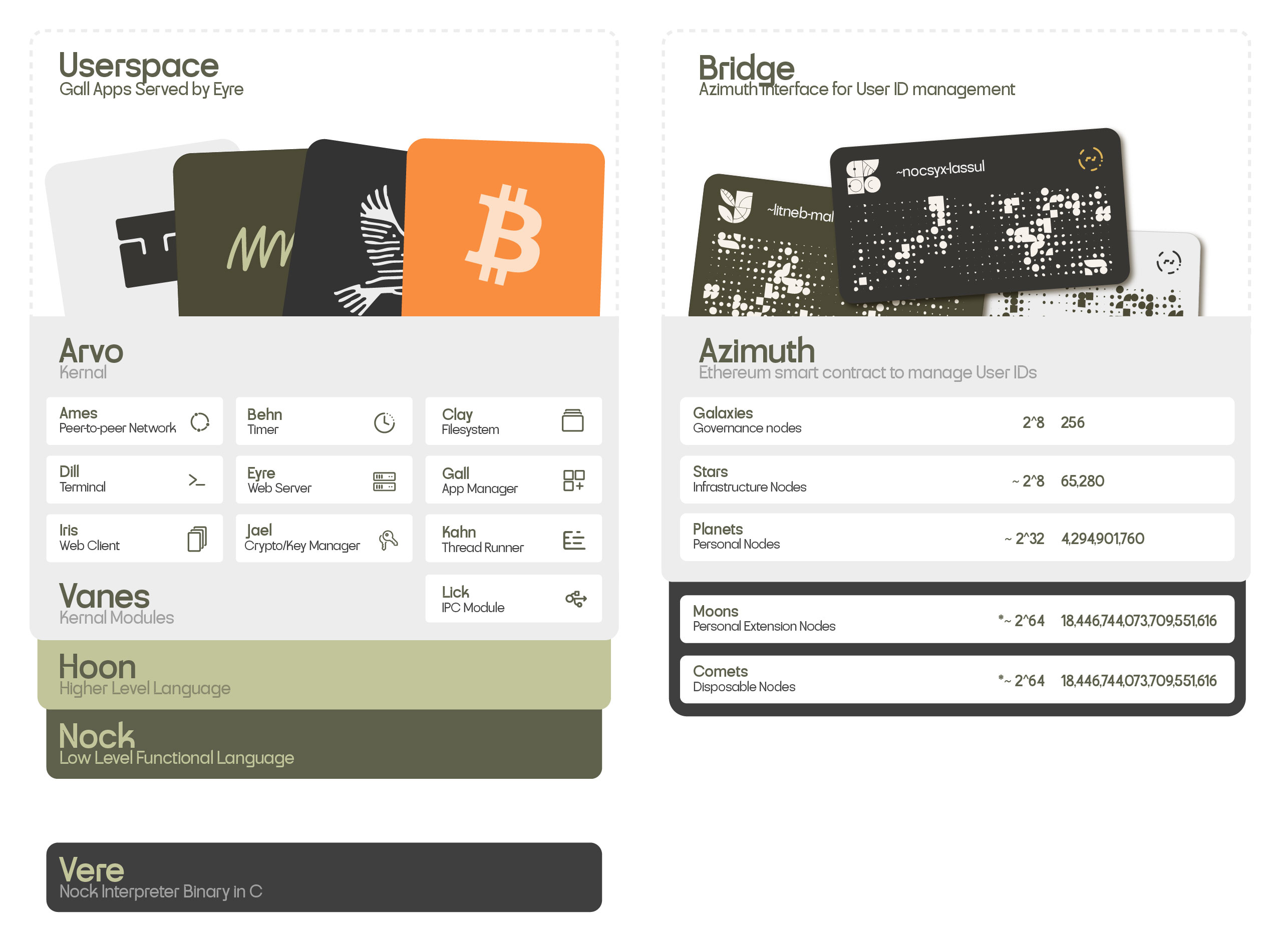We are building Urbit because we want to take computing beyond what seems like the inevitable mess of humanity’s current computing trajectory: unfixable security vulnerabilities, hopeless bitrot, endless spam, and deeply structural centralization. We want to build a future where we can have computers that we can trust. Computers that can last a lifetime. Computers that we can use free of extractive middlemen who want to hijack our attention, steal our data, and manipulate our behavior to their own ends.
It’s clear that connected computing is important and that it’s here to stay. We want a better user experience–not just more flashy user interfaces–for humanity’s networked computing. We just want it to be as calm, simple and reliable as possible, and we believe that in order to get that, we need computers that are truly ours.
To that end, Urbit is an open-source project that anyone can work on. The Urbit Foundation, a non-profit organization, is charged with shepherding the network toward a successful future. Tlon was the first private company founded for the purposes of working on Urbit, back in 2013. But now there are several more. These include Native Planet, Zorp, and others. Beyond that, an ecosystem has sprung up around Urbit that includes funds, DAOs, and even Layer 1 zero-knowledge blockchain built on the Nock instruction set. And of course there are everyday contributors, many of whom have received grants from the Urbit Foundation.
Throughout our endeavors building Urbit, we have encountered and tackled novel computer science problems:
- Development of a “Solid State Interpreter”; an interpreter that is also an ACID database
- The first production implementation of Named Data Networking (NDN)
- Novel performance optimization of compact instruction sets through Subject Knowledge Analysis (SKA)
- And more…
Technical contributors regularly publish articles in the Urbit Systems Technical Journal discussing the discoveries, challenges and implementation details of these problems, cataloging the knowledge for future generations.
All of Urbit is built to function as a single stack, and we think that building useful products is the best way to mature the system as a whole. That said, each component of this system can be used on its own. Don’t like our client? That’s okay, you can build your own. Don’t want to use Urbit OS? No problem — you can use Urbit ID as an authentication system for some other OS, or for anything, really. The possibilities abound, and we hope you help take it beyond our wildest dreams.

If any of this caught your interest, we encourage you to take the next step and start running urbit. And if you are so inclined, read the docs and learn to build on Urbit yourself.